|
I'm putting up my leader's poles at 21st & Jefferson (trolley drivers look out for each other!); a call comes over the radio as I step back in, warning of an African-American woman wandering around the train tracks at Martin Luther King Way.
"Can't beat that light rail, nigga," says a teenager behind me to his girl, in funereal tones, the two of them in dour agreement over the unequal odds in a rail accident. They're discussing a recent collision, blood everywhere and so on. Something about them makes me smile; perhaps it's the the colloquial nature of their discourse being paired with such severe subject matter. "That's how fool's be gettin' cooked," says the young lady, with an expression so austere it'd be right at home in a Fra Angelico painting. The description of the woman comes over the airwaves: "Please don't let this individual on your bus. She's African-American, late thirties early forties, very belligerent..." Oh, no; is it her? Are they talking about you-know-who? "...around 180 pounds..." Good. Not heavy enough. Not enough poundage to be the great LSB-Dub. She may indeed be belligerent, but I wouldn't want her to get hurt; she fills a void that is indeed part of the world. Where else will I encounter such completely non-sensical statements such as what she once told a bearded friend of mine: "Wanna make out? You look like Osama Bin Laden. Let's make out so I can check off Osama Bin Laden off my make-out list!" Recently a fellow bus driver friend called me, leaving a message that left me smiling for days. "Ooohh Nathan, somebody you know...was on my bus," she said in a singsong voice. "I'll call you again. Oh, man. You're gonna love this," she chuckled into the voicemail. She was referring to the passenger in question. There wasn't a hint of malice or fear in my friend's voice, just the high-energy joy of a perception enlightened, one that doesn't seek to control, but simply to coexist, to vivaciously continue alongside all our human brethren. I was thrilled.
0 Comments
A lumbering man dressed entirely in nothing but clear plastic, stentoriously repeating three words, over and over again: "JEFFERSON AND BROADWAY! JEFFERSON AND BROADWAY! JEFFER..."
Here's one guy who knows where he wants to go. With him is a caretaker, very discreet and quiet, as if hoping to balance out the outré nature of his charge. "JEFFERSON AND BROADWAY," the fellow repeats, crinkling plastic while he sits down, slurring out the location as best he can. I get on the mic as we approach the zone: "Coming up next is," "-JEFFERSON AND BROADWAY-" "Like the man said, Jefferson and Broadway, our stop for Swedish main campus..." I wish I could say I timed it perfectly, but it was just slightly off. We're in the real world, after all. In the gospel tradition of call-and-response preaching patterns, I buoy up his declarations: "JEFFERSON AND BROADWAY;" "Oh yeah," "JEFFERSON AND BROADWAY;" "Uh-huh, you got that right," "JEFFERSON AND BROADWAY;" "Gettin' it said-" "There it is," I say as we reach the highly anticipated location. "JEFFERSON AND BROADWAY," he roars, by way of thanks. Suddenly he loses all motor skills in his arms and legs, and has to be dragged off bodily by his able caretaker, clunking down the steps. I get the impression they've done this before. The caretaker looks at me with a rueful smile, shaking his head when I offer to help. "JEFFERSON AND..." There's Mo, driving the 3 on the other side, in the Central District. He pulls alongside opposite my 4 and leans out his window. He's smiling. He says, "this is so much fun!" "I think so too!" "Only for us though!" "Yeah, probably just you and me!" And some other operators, of course. It's an acquired taste. A few days later I saw the young vet in the wheelchair again (see the post below for more). He was crossing Third Avenue, being pushed by a friend, and they were milling about in the ongoing melee known as the Third & Pike bus stop. I'm pulling in, cruising up to the head of the zone. Nowhere near these guys. There's somewhere in the undulating crowd, and I'm jumping outside my bus now, looking for them. Three seconds. A snatch of recognition here and there. My curiosity is compelling me forward: did he make it to the showers? Is he okay now? Five seconds. I want to see peace on his face. Six seconds; there they are. I sprint over to them.
"Hey! Hey!" He looks up. "Did you make it to Urban Rest Stop that one day? Remember, the..." "What? Oh. Yeah." "Nice. I jus' wanted to make sure everything worked out." "Yeah, it worked," he muttered, avoiding eye contact. "Thanks." Maybe he was embarrassed. Or stressed. They moved on. Thirteen seconds; I'm back on the 70, driving away. Later on, after my shift, I was at Med Mix in the Central District with a friend for dinner. Outside the establishment was a man in a wheelchair, asking the patrons for handouts. I greeted him, made friendly but noncommittal remarks when he asked me for chicken, and went inside. After a time I bought him a cookie and went out to give it to him. He was enjoying a plate of somebody's leftover chicken. "Hey, this is for you," I said, handing him the cookie. He looked at it before saying, "aw man, couldn't you get me no chicken?" "You got chicken right there, dog. This is dessert. That's dinner, and this is dessert." "Hey. You got any money I could go buy some chicken?" "I got cookies, is what I got. I'm the dessert guy. Gotta keep this meal balanced, my friend. Food Pyramid, bro. This one's for you." "Okay. Okay. Alright." "You have a good rest of the night now." Later on he waved at us through the window as he left for the evening- peace, two fingers- his only gesture of thanks. Now, there's something about the lack of gratitude in these two incidents that I actually like. For a time I couldn't put my finger on it. There was a coldness to it that felt in accordance with what Joyce calls the "vast indifferent dome-" the ruthlessly impartial world we live in. It was as if these men knew the helpful attitude I was offering does not- should not- deserve praise. In a model universe, it should be the default norm for human interaction. In their silence, they were telling me this. They didn't have to thank me; I was behaving as one human ought to toward another. Only in the shortage of such do we feel the need to be grateful. Of course I like being thanked. Don't get me wrong. I love it. It's more than a heartening or flattering sensation. I'll be vitalized because the person thanking me is likely experiencing their version of what I feel when someone is kind to me- that warm sense of belonging, of acknowledgement. It isn't about transfers or directions or free rides; we know those aren't really the things that excite people. It's about the gesture, or lack thereof. You didn't have to help that lady up the stairs, or nod at the thug getting on your bus, but you did. Respect. The notion of having a place in this world, of having your value recognized; the assertion of an equal plane, and the idea that you and I both exist on it. I imagine they're happy not because they think I'm a good person, but rather because of the generous, enveloping sensation that acknowledgement brings. Sharing in this energizes me greatly. When people are grateful, yes, I melt. But there was a buried wisdom in these two men's silences, and it gave me pause. What I am doing is not so worthy of acclaim. Ideally, it should not be remarkable. If anything, their attitude was one with a perverse optimism: they were acting as if people are selflessly generous to each other all the time, and that, well, this was just no big deal since it happens constantly. I'm not out here to garner thanks, though I'm galvanized and rejuvenated by it. The good energy you put out there comes back tenfold, in many ways; but that's not why you put it out there. I'm reminded of what the great operator Ernie L once said to me- "I greet every single passenger. It doesn't matter if they don't respond. What matters is that I put myself out there. I accomplished that." Active, not reactive. There's a young African-American family, somewhere back there. It's the 10, and we're crowded today.
Two young girls, with their father, mother, and stroller in tow; Mom's wearing purple, got her hair in braids, tied back in a high ponytail. Dad has a puffy white jacket and close-shaven hair, no sunglasses, with heavy blue jeans and basketball shoes. For lack of a better description, he looks exactly like Big Boi on the cover of Outkast's double album Speakerboxxx/The Love Below. He'd been watching me do my thing, as I greeted and chatted up all the passengers. They, the family in back, all seemed a bit weary from what looked to have been a long day. The daughters looked out the window, or leaned against Mom, drifting in and out of slumber. The crowd was a mixture of everyone- some happy, some tired, some impatient. From the back lounge, Big Boi looked on in silence, taking in my behavior. At 15th and Pine the family came up to leave. The girls ("Bye! Bye!") were first out. "Thank you," said Mom to me in a subdued but truthful voice. "No, thank you! Take care now!" Big Boi brought up the rear, carrying the stroller, holding his big jacket in close to keep it from hitting people. When he got to me he said quietly, "Hey. You're doin' a great thing." "Thank you!" "Carin' about the people." "Thank you," I said, wishing I could tell him how much I meant it. As they began walking away, he added: "Kind heart!" He said it with the muted enthusiasm of a quiet hope. There was a gentle sadness on his face, the way God's might look were he to survey his wayward children. The late Roger Ebert once wrote that it wasn't the tragic events in films that brought him to tears, but rather the moments of humans being enormously good to each other. To see empathy, to see compassion; these are the actions that stop us in our tracks. http://blogs.seattletimes.com/today/2013/08/metro-bus-driver-shot-in-downtown-seattle/
Over a fare dispute? What a sad and disappointing waste of life. My heart goes out to the victim, the shooter, the passersby, the strife and tension that led to the interaction. The world of hospital beds, heart-pounding pavement, glass shards and echos between tall buildings; the sickening feeling of your actions leading ahead of you, going places you know you shouldn't follow, saying things and regretting them all at once... it is no place to be. Sitting in the back of the 41 last week, I listened to two young men next to me. They were discussing mid- and entry-level positions in the prostitution business, and their thoughts on life as would-be procurers. After a time their conversation drifted to larger concerns. "'Cause life be movin' fast. But that ain't the nature a life itself, we make it that way. People fillin' up all the time, sayin' they saving time by doin' shit faster but you know is' bullshit. They just as busy as before. More busy even." "And people wonder why they not happy," "Man. People be talkin' about yoga, meditation, fucked-up diets- but it's really just about slowin' the fuck down. That's all it is." Abstractly speaking, we know how to avoid incidents like what happened today. We all know the rules and stance on fare disputes (avoiding them takes priority over collection). But the insistent weight of the day-to-day makes things harder. When life is cramped with stress, we don't operate at our best; the goodness we know we have escapes us. Priorities stutter and burst out of shape. I regret moments when I've spoken sharply to someone, forgetting what's really important. I have every faith in the abilities of the driver who got hurt today (and is still with us, thank goodness); stress leads us away from who we are. I hope everyone involved has a chance to recover, heal, consider things, slow down... and breathe. Let those priorities gently drift back to where they belong. We, the ever-changing, ever constant human animal, are better than this. We don't need pugilistic activism or rash, fear-based solutions; we simply need to breathe. "How's everything today?" It's the Sherriff, asking after my welfare at Third and Pike. I'm on the 70.
Referring to safety concerns, I respond, "everything is fantastic!" "Wow. Really?" "Well, it's the 70. Nothing ever happens on this thing." My regular route for the past two months has been the 70. You'll notice there hasn't been a single story about it during that time. In truth, it's not a very Nathan-like route. Where are the walkers and wheelchairs? Lately my friends have had to patiently listen to me tell them about how quiet, and by extension how uninvigorating, the 70 is. Thank you, friends, for listening to me repeat myself. Certainly there are some wonderful- wonderful- people on it (you know who you are!), but there's also a gargantuan number of strangely docile hordes who overload the bus with a standoffishness that confuses me. I once spoke with another driver who shared my practice of greeting every single person who boarded his bus. Like me, he noticed that some folks responded while others didn't; he attributed the dividing line to age. In his view, younger people tended to avoid interacting. They often had headphones or other paraphernalia taking them out of the present. That may be, but I've typically attributed such attitudinal differences not to age, but to class status. In my experience, the upper classes disproportionately avoid responding to my "hello's" and "how are you's." I won't speculate why, or argue as to which of these two correlations is more accurate, but I will say that on the 70 it's a moot point; the crowd is both upper/upper middle class and young. I'm sure they're terrific people. But boy, did they ever look uncomfortable when I first got on the route saying things like "hi" and "come on in;" there were those who refused to make eye contact, or looked up in fear when I spoke. They are civil. They're demure, polite, and avoid trouble. They place great importance on paying the fare, expediency, following the rules, and not being noticed. Things like this make me sleepy. I imagine they're only carrying over the general environment of their workplace, under whose spell they've been all day. You've been in your cubicle for the past nine hours, where these behaviors are necessary for survival; naturally there'll be some spillover while you decompress on your trip home. They seem to avoid human contact however possible, unless it's mediated by technology. In the spirit of being active and not reactive, I don't approximate their behavior so much as simply continue my own; I greet them with the same enthusiasm as I do everyone else. I think they're starting to open up. At first it was just the street people. You've got the low-income and transitional housing units on Harrison, the drug and alcohol rehab facilities on Denny, as well as Urban Rest Stop and the Solid Ground shuttle stop at 9th. There's also the food bank on 50th, open late on Tuesdays and Thursdays. So I'm not entirely alone out here. Shay is covered in multicolored flair, with great dreads and attitude to spare. I didn't know her yet. Here she is now, stepping on with a friendly swagger, exchanging a smile at something new. She watches me work, sitting in the back lounge on her way to the food bank. I announce the stops as I always do, in a conversational tone, calling out intersections and transfer points as if they are lively points of interest. Finally she yells, "I like you, bus driver!", by way of evaluation, with a boldness that sails over all the youthful worker bees. Then there is the young streetwise couple with the dog. Their clothes are faded and their belongings weathered; but where will I find more verve? They- she, especially- always greets me with an unreserved zeal that calls back to life that corresponding part of me. She lies down in the back on her boyfriend's lap, not taking up too many seats, but still making herself at home. Carefree. Didn't you do things like that when you were young? "Awesome," she said loudly once, after I'd announced something, because she thought so. Through the standing crowd of people I smiled at her in the mirror; jostling bodies, corners and noise, that beam of an expression slicing through it all, only needing eye contact for a second to be real. Physical appearance isn't really what makes a person attractive; it's self-confidence. Theirs buzzes with life. One day a woman from the Roosevelt Clinic gets on, staff, and she's excited by my friendliness- though it isn't only mine, but hers too. She doesn't use the term Freeze, opting instead for the less severe designation of "Seattle Chill;" we discuss how you can usually warm it up by being proactive. I talk about my love for the people. I tell her about my days at University, and how my friends would say, "Nathan, why are you getting this big degree when we all know you just wanna drive buses?" She laughs. Her syntax relaxes after we talk a while. We get comfortable. Like the Microsoftian hordes, the Amazonian hordes started out as unresponsive, as described above. Masses of them wait at Harrison, flooding the bus every day. Unlike those folks on the 545, however, the Amazonian crowd has warmed considerably. It's no 3/4, sure, but so many of them smile now, or nod, or make some sort of human interaction. Change in the mainstream happens slowly, but a shift is taking place. They see the way I live and breathe amongst the street people. I've noticed that if I'm chatting with someone up front, the rest of the bus feels it's okay to talk. The studied boredom gives way to an excited hum of chatter. On Fridays, the crowd is visibly happier. I hear coworkers commiserating together, making joyful noise out of their work complaints; a man excited about his trip to Minnesota, talking of flat land and heat. There's a young Starbucks employee, brown hair tied back, reading her Pat Conroy book with a smile. A woman gets on my bus three times in the same day, by accident, and spontaneously gives me a hug on the third trip; no reason. Just feels like it makes sense, here in the space we've built. Two Amazonians sitting up front, as we discuss the details of their jobs. Smiles eager, that feeling of life ascending inside you, surging up to your throat. The air is rising. Here's a lady from the low-income housing, bringing me cherries and cookies. I can hardly believe it. A librarian friend and myself at the front, laughing all the way back to silence and starting again, filling the air with jubilant chaos. Packed bus now, and we have to yell at each other to be heard...and this is on the 70?!? A woman with a bicycle, rich in secrets and character, is on her way to tend bar; her laugh lines crease into pleasant delight as our cacophony surrounds. I look in the mirror at them all, standing, sitting, laughing, talking. It wasn't like this on the first Friday. Alongside all this, there are still those who seem terrified of acknowledging other humans. Like I told the Sheriff, it's the 70. But that's okay. I wrote earlier that I'm sure these are terrific people; despite their reticence, I mean that. The Wall Street Journal recently ran an article broaching the latest reveal in psychology, wherein Professor William Fleeson said, "If you're introverted and act extroverted, you will be happier." I adamantly disagree. Contrary to contemporary cultural suggestion, being introverted is a virtue.* We tend to look down on passivity, but let's not forget its origin, from the Latin passivus, meaning "to feel." Passivity does not equate death or numbness, but can be just as alive as action. When in a passive state, such as that of an audience, we can observe, and consider, and ultimately open up to our surroundings in ways impossible if we're too busy running our mouths (as I often do). There is value to receiving, rather than always generating; to be present. There's more than one way. Additionally, these guys may be commuters, but they aren't the complainers on the 77. They don't whine when the bus is late; they grasp the notion, more prevalent in this century than past centuries, that such flaws stem not from individuals, but systems. A young UW law student once got on to my 70 after waiting forty minutes; I couldn't believe he wasn't angry. Intuitively, he understood what any number of commuters twice his age don't stop to reflect on; it isn't the bus driver that makes the bus late, but the constraints placed upon him. He asked me about scheduling, structures in route planning and execution, and shifts in travel patterns. In short, he was cognizant of the bigger picture. The shirtless, destitute young man next him joined in intelligently. The three of us had a great conversation, speaking of coach assignments, budget allocation, autocratic socialism, transit infrastructure in other countries.... I am often drawn to the past, to earlier ways of thinking and doing; I believe in open communication, as you all know. I'm thrilled my 70 gets loud sometimes. But not all the quieter folks are preoccupied with distracting themselves out of the present with electronics. By virtue of simply being themselves, they have insights of immense value to offer. I'm thrilled I've been able to impart some of my perspective into their lives, and I'm thankful to be in the presence of theirs. *For more, refer to the Susan Cain book Quiet: The Power of Introverts in a World That Can't Stop Talking. Additionally, the notes on passivity derive from the poetry of Elizabeth Cooperman. We're pulling out of Harborview inbound, approaching the stop bar, about to work our way through the right turn. Someone's running for my bus. I'd rather not pick them up- 4 minutes late on a route that runs every 7- and I wonder if someone's about to ask me to wait for her. I know what I'll say if someone does ask, but instead I hear-
"Don't wait for her!" "You want me to keep goin?" I don't look back to see who it is, still concentrating on the turn. "Yeah, this bus come so often. Gotta keep it rollin.' If you be stoppin' for everyone, I'ma have to beat you up." I turn around. "Is that right?" It's a friendly face. He knows me from the 7. We laugh. Gristly African-American fellow with glasses, older. We continue riffing off of each other- "Yeah, you know I'm jus' doin my job," he says. "Tryna enforce the rules real proper-like." "You don't want me to be stoppin and waitin," "They tol' me the rules. Can't wait all day for runners, "Keep the situation moving," "Yeah. Don't wanna beat up nobody I dont' have to..." "It wouldn't be nothin' personal," "Aw naw, it's about the rules. Can't have you, friendly muhfugguh that you are, pickin up all a creation. You know I got to enforce the beatdown." "Shoot, I better leave this girl by the side of the road then-" "If you know wha's good fo' yuh! I'm a check up on you next time, you better not be breakin' no rules!" "Always good to see you, man!" "Yeah, you too. 'Specially when I don't have to beat you up!" Ever since then, he'll bring up the subject, but naturally the other passengers will be in the dark. I enjoy seeing their befuddled faces when he gets on. "Do I gotta kill yo ass?" "Always! You know I picked up all kinda runnin' people!" "Don't make me go to work, man! Don't make me go to work!" "But I'm glad you stepped on. To remind me what I'm supposed to be doin.' Keepin' me in line." "Hey, that's why I'm here," he says in a meaningful tone. "For the good of the system-" "Yup yup." "This man's a valuable asset to the company," I explain to the others in a mock-serious voice. "He's helpin' me remember the importance of a job done right..." "Aw yeeeah," he says with enthusiasm, while people look on, terrified. They're confused by my attitude. Without any context, the interaction hardly makes sense, and we gleefully carry on. He notices someone at an upcoming zone. "Hang on, bus driver, hold up. I gotta go kick that guy's ass." He walks toward the man outside and they shake hands, striking up conversation. I turn to the Navy man seated at the front, who'd been listening. "It's all a matter of semantics!" I say. "Wow, I guess so! I guess that's one way to say, 'there's my friend, I'm gonna say hi!'" A recently freed man from the county jail, sitting in the back on a cloudy day. Lines on his skin, framing a face that's been through who knows what.
"I haven't ridden the bus in a long time. Forgot how good it feels," he muses to the person next to him- maybe a best friend, maybe nobody. Third and Virginia northbound, taking Queen Anne residents home on the 3. Inside our bus is the weary calm of commuters exhausted, fatigued, relaxed- decompressing as they look out the window, transitioning into a happier state. They still wear the withdrawn isolation of their various workplaces; no unnecessary noise, no needless risks, everything just so as they perform the motions needed to make it through the sweaty, humming animal we call the afternoon rush hour. It is serene in here; placid, one might even say.
Outside at the zone, just three feet away, near our bus's doors, all is not placid. A woman, a Dickensian citizen of the slumming street, is hollering. "I see you, motherfuckers! I eat shit two days a week, fuckin' five thirty! Assholes on the outside, assholes on the inside..." A few more commuters step on, raising their eyebrows. "How's it goin," one asks with a sympathetic grin. We smile. There is something about the radically different approaches people take to life that excites me. When we put aside the thought of whose approaches are "better," we can simply sit back and enjoy the amusing, richly energizing human comedy at it's fullest. She continues- "Assholes don't EAT corn flakes! Get away from my vintage fucking..." "I'm learning some new words!" I quip to the passengers around me. "Pickin' up somethin' new everyday!" "Let's, uh, get outta here," I say into the mic to visible relief. "I'm gonna close the doors." "Not a bad idea," smiles a well-dressed commuter seated further back. She seems intrigued by the idea of simply accepting all of this madness, invigorated by the notion of putting aside fear and judgment for a moment. It is a galvanizing renewal. Out loud I say, "it's a character-building experience, waiting at Third and Virginia!" "That it is!" |
Nathan
Archives
July 2024
Categories |

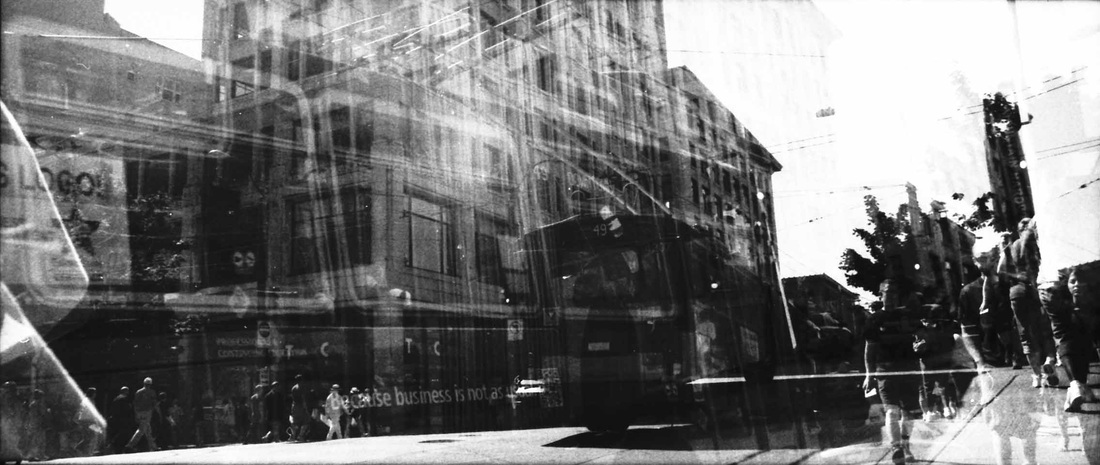
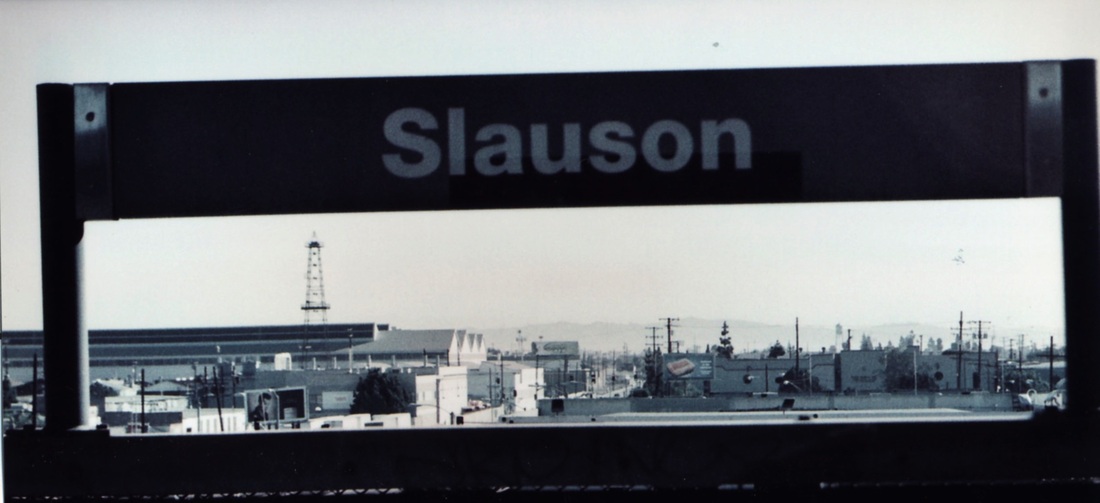

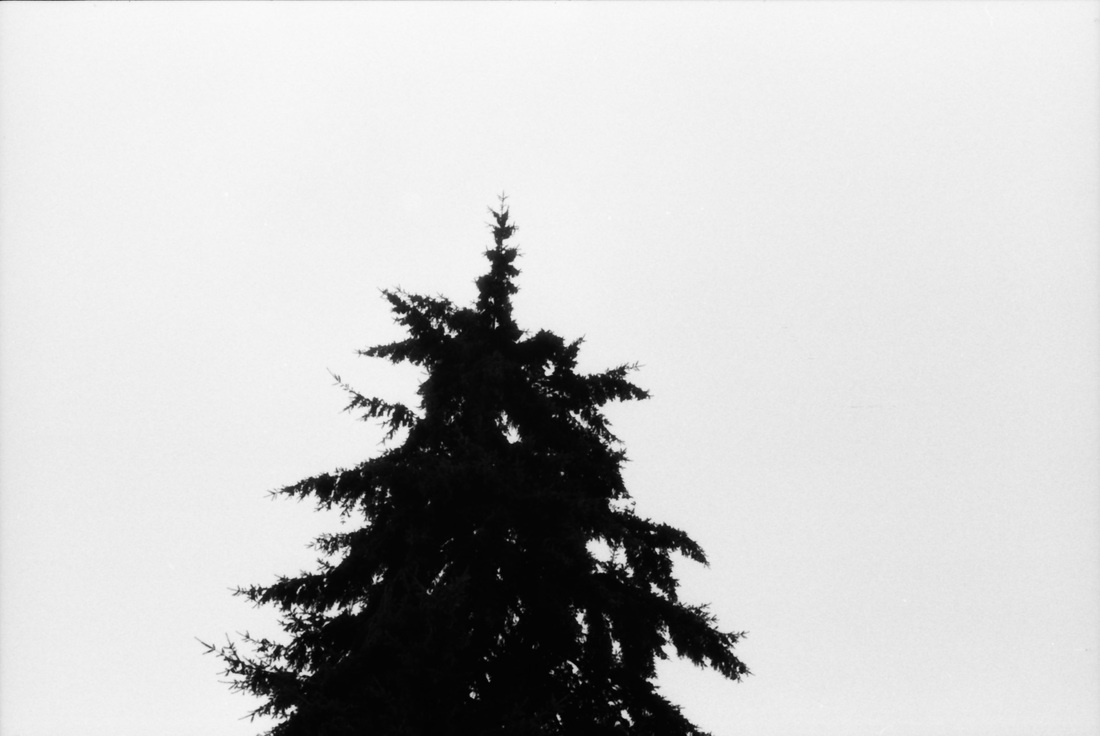
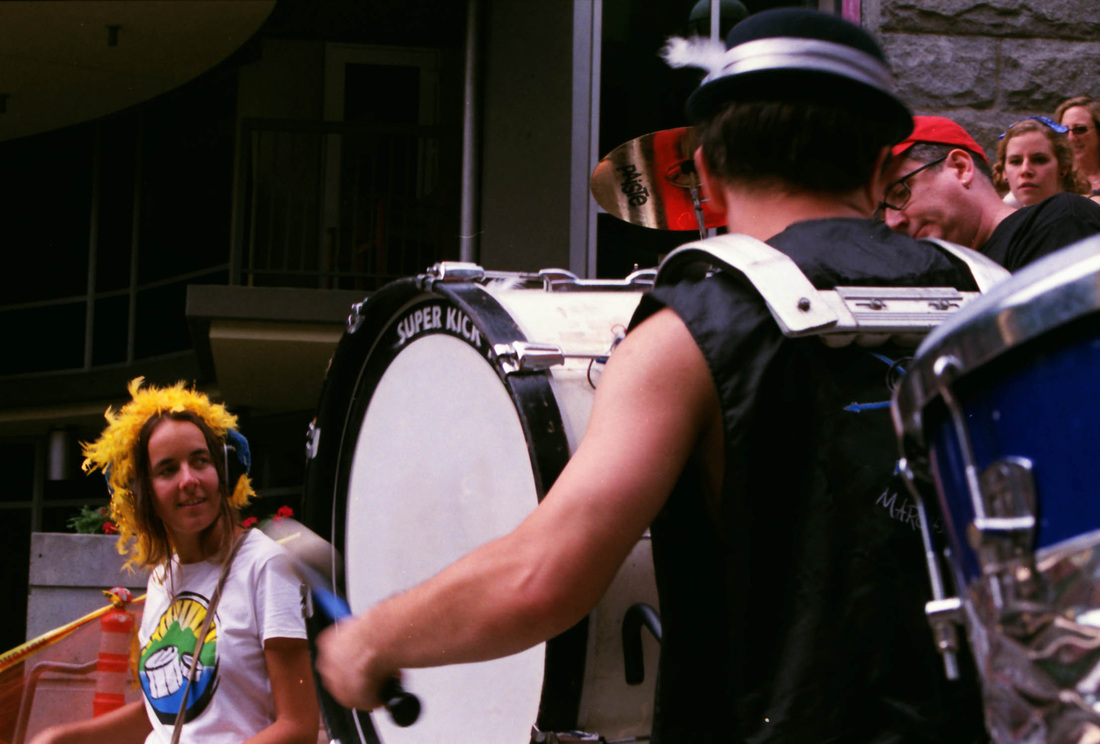
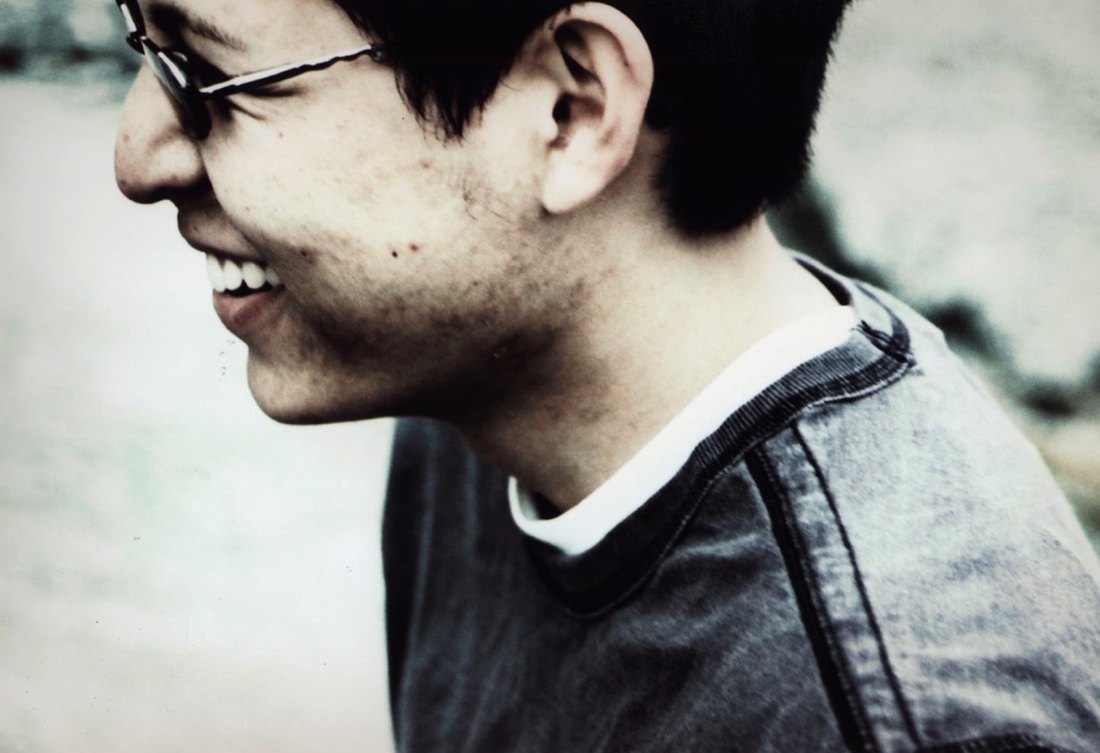
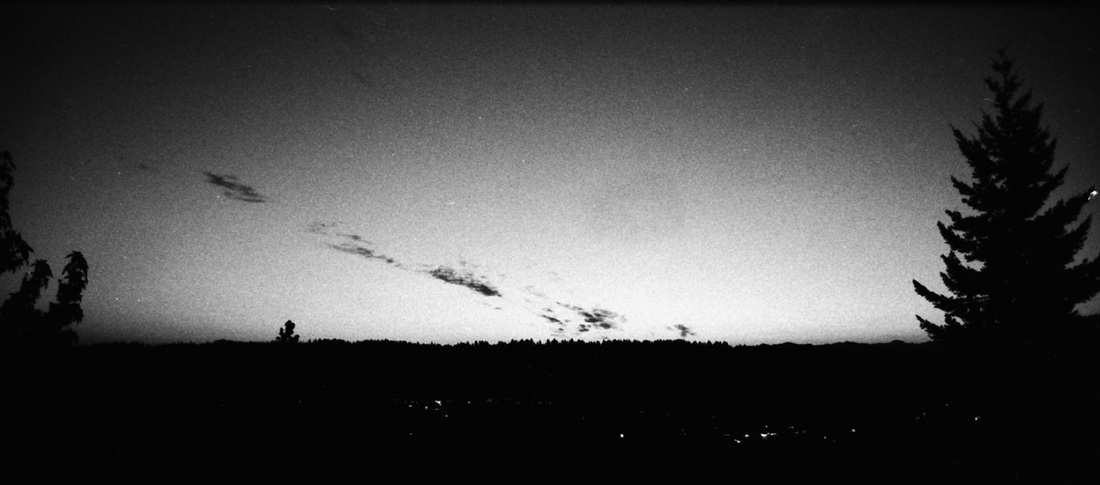
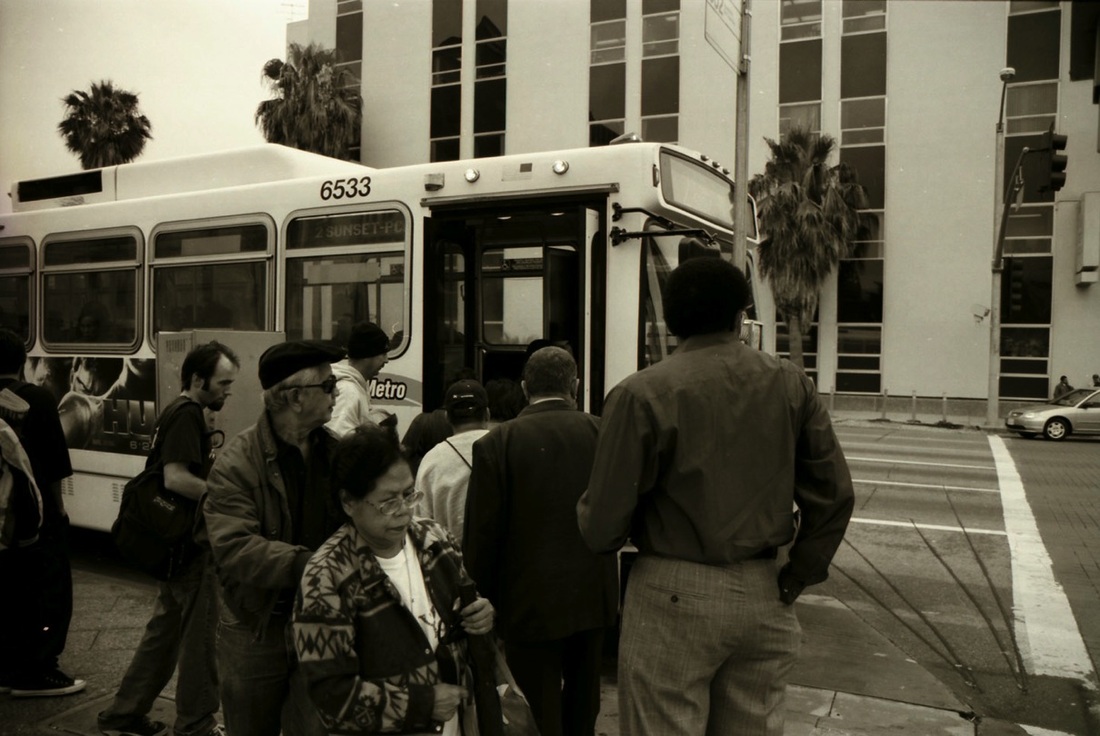
 RSS Feed
RSS Feed
